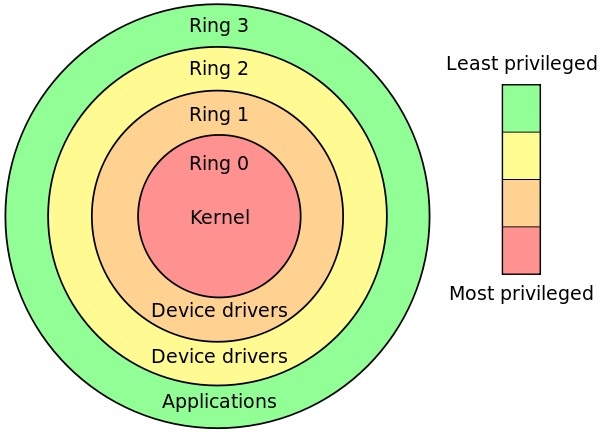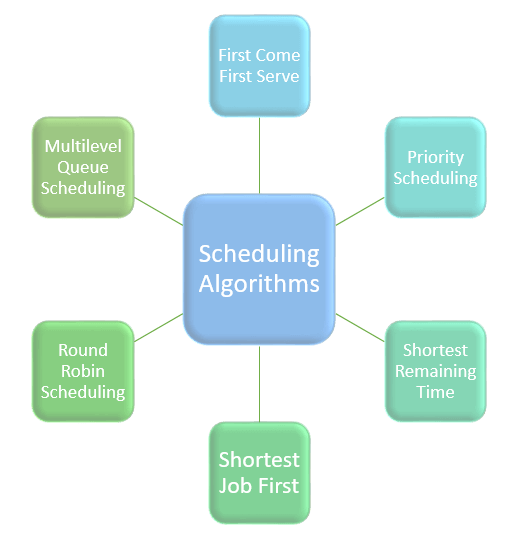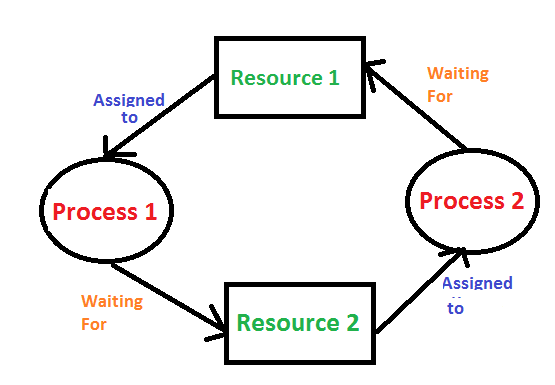To operate the Blended Learning Center(BLC) at optimal level, maintenance will be performed every day at 8:30 AM and at 5:00 PM regularly which can take up to 30 minutes. Please consider scheduling your activity in the BLC platform accordingly.
Topic outline
- Welcome to Operating Systems

Welcome to Operating Systems
Course Outline
Text Books
1. Operating System Concepts, 9th edition by Silberschatz, Galvin, Gagne
Reference
Books:
1. Modern Operating Systems (Latest Edition): Andrew S. Tanenbaum
2. Unix Shell Programming- Yashavant P. Kanetkar
Course Rationale
Operating systems are central to computing activities. An operating system is a program that acts as an intermediary between a user of a computer and the computer hardware. Two primary aims of an operating system are to manage resources (e.g. CPU time, memory) and to control users and software. Operating system design goals are often contradictory and vary depending of user, software, and hardware criteria. This course describes the fundamental concepts behind operating systems, and examines the ways that design goals can be achieved.
Course Objective
- To learn
the fundamentals of Operating Systems.
- To learn the mechanisms of OS to
handle processes and threads and their communication.
- To learn
the mechanisms involved in memory management in contemporary OS.
- To gain knowledge on distributed
operating system concepts that includes architecture, mutual exclusion
algorithms, deadlock detection algorithms and agreement protocols.
- To know
the components and management aspects of concurrency management.
- To learn
programmatically to implement simple OS mechanisms.
Course Outcomes (CO’s)
- CO1: Able to explain the
functions, facilities, structure of operating systems and fundamental operating
system abstractions.
- CO2: Able to analyze the
structure of operating system and design the applications to run in parallel
either using process or thread models of different OS.
- CO3: Able to analyze the
performance and apply different algorithms used in major components of
operating systems, such as scheduler, memory manager, concurrency control
manager and mass-storage manager, I/O manager
- CO4: Able to analyze and
justify the various device and resource management techniques, managing
deadlock situations for timesharing and distributed systems.
Grading Scheme
Attendance :7%
Class Test :15%
Presentation :8%
Assignment :5%
Mid Term Examination :25%
Final Examination :40%
- Week-1: Introduction
Week-1: Introduction
Topic of Discussion
- Introduction with the
students
- Introduction to Operating
systems
- Review the basic
organization of computer systems.
- Operating systems
Structure and functions
- Computing Environments

Expected
Learning Outcome
- Learn about the major
components and functions of operating systems
- Learn about many types of
computing environments
- Explore several
open-source operating systems
- Week 2: Operating-System Structures
Week 2: Operating-System Structures
Topic of Discussion
- Operating System Services
- System Calls
- Operating System Design and
Implementation
- Operating System Structure

Expected Outcome
- Learn about the services an operating
system provides to users, processes, and other systems
- Differentiate between user level and system level functions
of OS
- Explain the various ways of structuring an operating system
- Week 3: Processes
Week 3: Processes
Topic of Discussion
- Review class
- Class Test-1
- Process Concept
- Process Scheduling
- Operations on Processes
Expected Outcome
- Understand processes, various
features of processes.
-
Understanding process
scheduling, context switching, process creation and termination.
QUIZ 01

SET A - Click Here (Even ID)
SET B - Click Here (Odd ID)
- Week 4: CPU Scheduling
Week 4: CPU Scheduling
Topic of Discussion
- Scheduling Criteria
- Scheduling algorithm (FCFS
and SJF)
- Advantages,
Disadvantages and application of scheduling algorithm
- Exercise

Expected Outcome
- Explain different process scheduling
algorithms and their pros and cons.
- Evaluate the performance of various
scheduling algorithms
(Non-Preemptive and Preemptive
Solve Problem from updated Chapter 6 ppt
Slide no - 29 to 34
- Week 5: CPU Scheduling
Week 5: CPU Scheduling
Topic of Discussion
- Scheduling algorithm (Priority
and Round Robin)
- Advantages,
Disadvantages and application of scheduling algorithm
- Exercise
- Class Test-2
Expected Outcome
- Explain
different process scheduling algorithms and their pros and cons.
- Evaluate
the performance of various scheduling algorithms
Quiz 02

Syllabus
1. Chapter 3 - Process
2. Chapter 6 - CPU_scheduling
EVEN ID - Set B - CLICK HERE
ODD ID - Set A - CLICK HERE
- Week 6: Process Synchronization
Week 6: Process Synchronization
Topic of Discussion
- Inter Process
Communication, Threading
- Process coordination, synchronization
- Critical Section
problem, semaphores
Expected Outcome
- Explore interprocess communication using shared memory and message
passing
- Introduce the critical-section problem, whose solutions can be used to
ensure the consistency of shared data
- Examine several classical process-synchronization problems
- Week 7: Mid Term
Week 7: Mid Term
Read the instructions carefully

- Week 8: Deadlock
Week 8: Deadlock
Topic of Discussion
- System Model
- Deadlock
Characterization
- Methods for Handling
Deadlocks
- Deadlock Prevention
- Deadlock Avoidance
- Deadlock Avoidance
Algorithm (Bankers Algorithm)
- Exercise

Expected Outcome
- Identify deadlock situation by checking
conditions
- Select a deadlock handling method from a
number of different methods for a specific scenario.
- Identify safe state and apply Deadlock
avoidance algorithm for sample data set.
Submit your solution

- Week 9: Deadlock & Presentation
Week 9: Deadlock & Presentation
Topic of Discussion
- Deadlock Avoidance
Algorithm (Bankers Algorithm)
- Deadlock Detection
- Recovery from Deadlock
- Exercise
- Presentation

Expected Outcome
- Select a deadlock handling method from a
number of different methods for a specific scenario.
- Identify safe state and apply Deadlock
avoidance algorithm for sample data set.
- To
present a number of different methods for preventing or avoiding deadlocks in a
computer system
- Week 10: Memory Management
Week 10: Memory Management
Topic of Discussion

Expected Outcome
- Identify various
ways of organizing memory hardware
- Explain memory-management techniques, including paging and segmentation
Assignment
Section -O4,O6

SEC- 37 (O2)

- Week 11: Class Test 3 and Virtual Memory
Week 11: Class Test 3 and Virtual Memory
Topic of Discussion
Expected Outcome
- Understand benefits of a virtual memory system
- Explain the concepts of demand paging
Solve algorithms from slide and submit them
- Week 12: Virtual Memory
Week 12: Virtual Memory
Topic of Discussion
- Demand paging
- Page replacement
and Page replacement Algorithm
- Disk
structure

Expected Outcome
- Explain the concepts of demand paging, page-replacement algorithms, and
allocation of page frames
- Examine the relationship between shared memory and memory-mapped files
- Explore how kernel memory is managed
- Describe the physical structure of secondary storage devices and its
effects on the uses of the devices
- Week 13: Mass-Storage Systems
Week 13: Mass-Storage Systems
Topic of Discussion
- Disk Structure
- Disk
scheduling
- RAID
structure
- Review Class
Expected Outcome:
- Describe the physical structure of secondary storage devices and its
effects on the uses of the devices
- Explain the performance characteristics of mass-storage devices
- Evaluate disk scheduling algorithms
- Discuss operating-system services provided for mass storage,
including RAID
- Topic 10 : Presentation Submission
Topic 10 : Presentation Submission
- Topic 15 : Final Exam
- Topic 16
- Topic 17
- Topic 18
- Topic 19
- Topic 20
- Topic 21
- Topic 22
- Topic 23
- Topic 24
- Topic 25
- Topic 26
- Topic 27
- Topic 28
- Topic 29
- Topic 30
- Topic 31
- Topic 32
- Topic 33
- Topic 34
- Topic 35
- Topic 36
- Topic 37
- Topic 38
- Topic 39
- Topic 40
- Topic 41
- Topic 42
- Topic 43
- Topic 44
- Topic 45
- Topic 46
- Topic 47
- Topic 48
- Topic 49